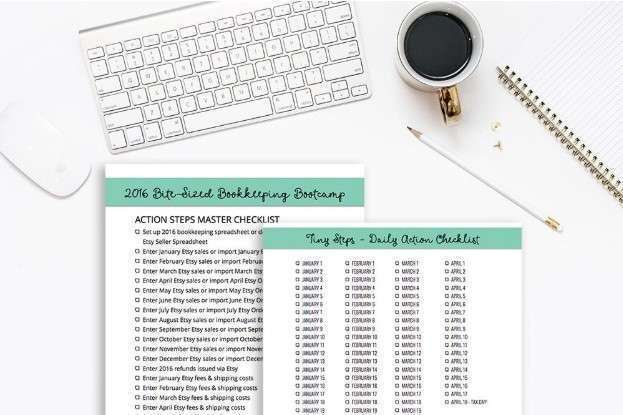
Purchasing a domain name and hosting, setting up the website and store itself are all very important steps to take, but without sound financial planning, your store won’t gain much traction. On a quarterly basis, this is where you should be reviewing your business’s finances from the previous quarters, setting new growth goals, and making sure your reporting is in order. One of the advantages of using Xero is that it integrates with dozens of software that your business might already be using or could use to get more clarity around your numbers. The easiest way to think about this is that the accountant is like the head chef and the bookkeeper is the sous chef. These standards and procedures are instituted by the Financial Accounting Standards Board (FASB). Get free ecommerce tips, inspiration, and resources delivered directly to your inbox.
What are the challenges of ecommerce bookkeeping?
- Accounting and bookkeeping assistance comes in many forms, including software, CPA professionals, and bookkeepers.
- When a physical retail business receives money in the bank, it is pretty easy to know how much constitutes business income.
- With this method, your total sales and inventory cost are instantly updated every time you add a new product to your inventory or sell an item.
- Now, let’s look at what to pay attention to when choosing accounting software for your ecommerce business.
Ecommerce accounting is the practice of recording, organizing, and managing all of the financial data and business transactions relevant to the operation of an ecommerce company. Think of it as a subset of small business accounting that is specifically set up to handle the unique needs of an ecommerce provider. Financial statements https://www.bookstime.com/articles/1-800accountant are the next piece of the accounting and bookkeeping puzzle. These requirements consist of three main areas, including generally accepted accounting principles (GAAP)/accounting standards, income statements, and balance sheets. Keeping a close eye on these items and adequately tracking them will keep your records accurate.
How do you record ecommerce sales?
If you’re overstocked on items that aren’t selling, you might have to spend more money just to store these products. Generally, brick-and-mortar stores have a much easier time managing inventory. Let’s say a brick-and-mortar retail business buys 100 units of a product and sells 70 units. Even if there was a clerical error when tracking inventory, they can simply check their physical inventory to confirm the numbers. Some might find that glancing at financial statements from time to time is enough of an accounting effort. But a company’s financial health depends on having the most accurate financial data.
- When selling 150 units, FIFO assumes that the first 100 units sold were purchased at $10 each, followed by 50 units purchased at $12 each.
- From keeping track of your daily sales to having proper records in place for tax time, managing your books should never be put on the sidelines.
- Basically, bookkeeping is the process of tracking the money that goes in and out of your business.
- An ecommerce business asset may include inventory, cash funds, and equipment.
- Below, we’ll look at different aspects of ecommerce bookkeeping in more detail, so keep reading.
Bookkeeping
It lists the activities performed or the cost of individual materials or components, and gives a total cost for the finished product. Invoices are a little less common in e-commerce business models, but you may use invoices if you produce customized products. You sold 5,000 units, which cost your business $30,000 (according to the weighted average method). Divide your total revenue by your markup percentage, and subtract the new sum from your calculated cost.
Use ConnectBooks to Sync All Your Bookkeeping Data
But more importantly, cash flow shows your gross revenue and net profit. If you know exactly how much money goes through the business, you can keep a positive profit margin. The fierce competition means business owners must take special note of their bookkeeping system, especially around tax season. That’s why developing the best bookkeeping practices can make all the difference.
Ecommerce Bookkeeping Best Practices
Dedicated bookkeeping service providers also exist on freelancer platforms, offering specialized expertise in ecommerce bookkeeping. Freelancer platforms offer a wide range ecommerce bookkeeping of options for hiring e-commerce bookkeepers. Websites such as Upwork, Freelancer, and Fiverr host numerous freelance professionals specializing in bookkeeping services.
Read this detailed guide to building your eCommerce bookkeeping system and processes.

Some of the most popular options are FreshBooks, QuickBooks, and Xero. If you’re accounting for SaaS, you pay attention to revenue recognition. In the case of business leasing or renting property, you’ll be catching up with ASC 842 lease accounting, and so on. Below, we’ll look at different aspects of ecommerce bookkeeping in more detail, so keep reading. Ecommerce stands out due to its digital nature, high volume of transactions, diverse payment methods, and often global reach, which pose unique challenges to bookkeeping practices. Bookkeeping should be updated monthly to avoid errors in financial reporting, missed tax deadlines, and difficulties in tracking business performance.

Learn About Financial Reports
